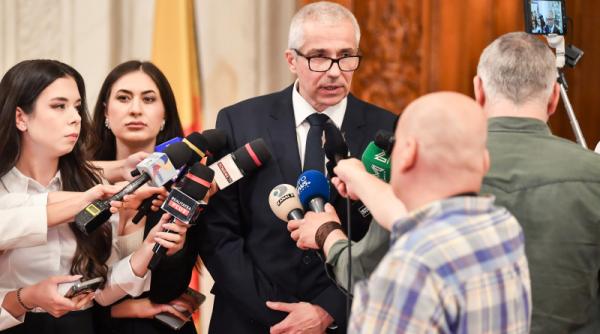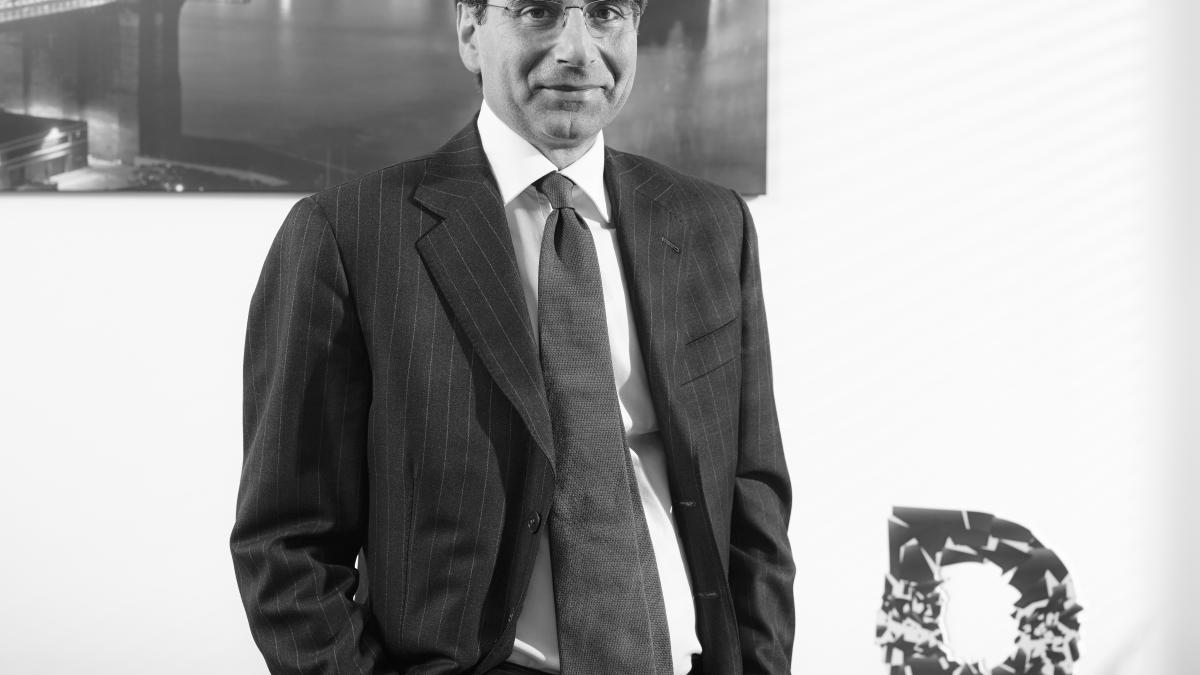
€ 5.0941 →
|
$ 4.3046 →
|
 fabrizio giombini ceo MSD
fabrizio giombini ceo MSD
The Romanian government may apply health reforms that could lead to a more efficient management of existing funds.
For six years, Romania has been removed from the map of medical innovation. Patients don’t have access to pharmaceutical technology discoveries made after 2000. Even though there have been important discoveries in some therapeutic areas, they have not reached the Romanian patient.
I asked Fabrizio Giombini, General Manager of MSD Romania how he sees the situation from the perspective of a major pharmaceutical company that invested in our country.
The pharmaceutical industry in Romania goes through difficult times without the update of the reimbursement list and the existence of the claw-back tax that increases from one quarter to another, since the last quarter of 2013. Even for a country subject to budgetary constraints, like many other countries, the situation in Romania has no equivalent in the EU.
Neither in Bulgaria?
No. Romania is the only country in Europe that has not reimbursed drugs in the last six years.. This means that the Romanian patients have not benefited from the innovative therapies discovered in the last period of time, although other European countries have reimbursed a large amount of these medicines. The recent reimbursement of some orphan drugs is the only positive sign in the last six years, referring strictly to the list of reimbursement drugs. As you know, at the moment, a new methodology for evaluating the molecules is in evaluation process. The pharmaceutical industry associations are working together with the authorities to find the best solution to implement this new methodology. We are confident that the situation will unlock, and that the authorities will implement a new list of reimbursed medicines starting this autumn, as per their official statements
Can we talk about unfair competition? Some companies have new drugs on the reimbursement list, others didn’t had this chance for long time.
Indeed, in the first half of 2014 the reimbursed medicines list has been updated with some important orphan therapies. This is extremely important for the Romanian patients who need these therapies and it is also a positive signal from the authorities, if we think that in the last six years there has not been any updates to the list. However, the lack of reimbursement of other important molecules gives us the risk that some products registered 3-4 years ago, as new drugs, innovative, to become \"old\" and the products of the competition that entered the market later to be promoted. Artificial blockages distort the market. But the main problems concerns the Romanian patients, that don’t have access to new therapies that might save improve their life quality and eve, save their lives. Medicines waiting to be reimbursed by the Romanian authorities might help them improve their health and even save their lives.
For Example?
For example, MSD registered in Romania a new drug for hepatitis C that not only treat, but even cures the disease permanently, in some categories of patients. It is the last hope for patients who have not responded positively to the therapies currently available in Romania. For them it is a matter of life and death and every waiting day costs them months of life. The update of the reimbursement list with new drugs would allow saving thousands of lives and also costs savings, both social and medical ones. Instead of reaching cirrhosis and, in the best case liver transplant, the patient is healed, to continue the example of hepatitis C.
-When could the new list be implemented? Do you rely on the new list to grow, economically speaking?
The Health Minister publicly promised that the new list will be ready by the end of this year. We must recognize that we, like all the other companies, we are a company that relies on profit in order to reinvest in research and to discover new innovative therapies. The increase generated by the update of the reimbursement list will not, however, be an important one. These revolutionary medicines that were blocked for 6 years will not be widely used, but only for certain categories of patients. The new list would generate a moderate growth for the pharmaceutical industry in Romania, but what is the most important thing is that the patient will have access to new therapies.
Some companies have limited operations in Romania. Is there a risk for companies to leave the Romanian market?
Indeed, this risk exists. There are situations where pharmaceutical companies don’t have any more local management, being managed by regional teams. What I can tell you is that MSD has no plans to leave Romania, although the pharmaceutical industry is going through difficult times. MSD has a humanitarian mission also, not being strictly guided by profit. As long as we are allowed to operate in reasonable parameters, we will be committed to continue to invest in Romania. I hope, and I am optimistic, that the current government will give us the possibility to grow in the market as for our companies to have the possibility to reinvest in research and generate new innovative therapies.
If the budget will not increase, what will be the solutions in this case?
I realize that the budget cannot increase compared to last year, as it happens in other countries, or as it was before the crisis. But the priorities can be rearranged in a more effective manner. I know that it is unpopular in an electoral year, to reduce costs or expenses that are not necessary, but healthcare domain should be one of the priorities of the policy makers, considering the fact that it can bring rapid increase in life expectancy and other indicators as well, like the therapy quality within the Romanian health system. I know that the government is forced by their three main external partners IMF, World bank and European Commission to keep costs at a low level, but reforms can be made that could lead to more a efficient management of existing funds. We had discussions with experts from the European Commission working with the Romanian government, and we understood that the deficit cannot be increased. Like I mentioned before, we are committed to be present in Romania, we want to collaborate with the Romanian authorities and we are doing this thing already. Currently, through the clawback tax (that starting 2014 is about 20% of the sales volume), pharmaceutical companies effectively contribute to the financing of the healthcare system in Romania. This tax is supported entirely by the medicine manufacturers. We could think at other funding schemes, in partnership with the Government. Provided that the authorities not to see the healthcare as a cost or as an extra expense but as an opportunity to rapidly improve the quality of life in Romania. It is essential to have some minimum conditions to operate in this market as to provide the best innovative solutions to the Romanian patients.
How is the Romanian market compared to that of your native country, Italy?
There are some similarities. Before coming to Romania, I thought that Italy was one of the most difficult countries in terms of market access policies. I had to admit that Romania is also a challenging environment. Italy also confronts with cost containment measures, and there is pressure to reduce pharmaceutical expenditure. However, the Italian patient has access to innovation and to the latest discoveries in terms of treatments. Even if they try to limit the expenses they do not do it by blocking the patient access to essential therapies.
What is the biggest problem you are facing here?
Unpredictability is one of the things together with the lack sustainability. Also, methodologies and timings are changing continuously and its difficult to make forecasts.
Any development plans?
Locally, we have 4 new important molecules waiting to be included in the reimbursement list. A innovative product for the treatment of hepatitis C, one used in the diabetes therapy, one in autoimmune diseases and another one, in oncology. Also, MSD researchers are advancing their work on some important products against HIV, a new class of anti-AIDS, anti-diabetes medicines and also a new generation of dugs addressing the Alzheimer disease. In addition, MSD laboratories are rapidly advancing the research regarding a new generation of products for the treatment of cancer, expected to be released in about a year and a half, and that will revolutionize the treatment of melanoma.
Do you anticipate a growth of the pharmaceutical market?
We have had positive results with anti-rheumatic, anti-diabetic and anti-hepatitis therapies, but the expectations for 2014 are not very optimistic. If you look at the numbers of the 10 most important pharmaceutical companies on the Romanian market, for 2014, six of them have a negative trend in terms of growth. Even the pharmaceutical market is, currently, decreasing. This is in contradiction with the global trend. Negative figures might affect companies, you say, but in fact they should concern also other stakeholders in the Romanian healthcare sector also. It means that the Romanian patients don’t have access to medication that was validated by the medical practice in the other European countries. We cannot talk about improving health services, without improving the patient access to innovative therapies.
Do generic medicines represent a solution?
We often hear this question: are generics important? Yes, they are important. Besides their medical importance, some countries encourage the use of generic drugs to reduce costs. Nevertheless according to some European studies, Romania is one of the European countries that has a high level of generics use and consumption of generic drugs.
Fiți la curent cu ultimele noutăți. Urmăriți DCNews și pe Google News

 Rodica Mitu nu avea impulsul de a merge, dar a avut impulsul de a trăi. 31 ianuarie, o zi a oftatului în culori: Trei ani fără colega noastră de la DC News
Rodica Mitu nu avea impulsul de a merge, dar a avut impulsul de a trăi. 31 ianuarie, o zi a oftatului în culori: Trei ani fără colega noastră de la DC News
de Anca Murgoci